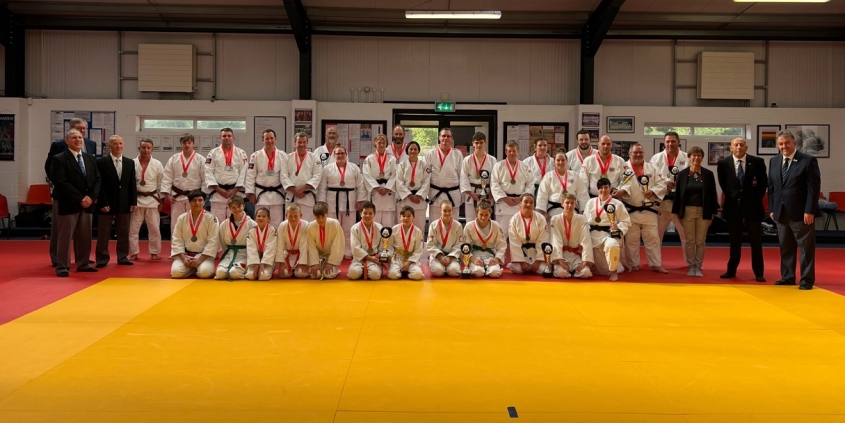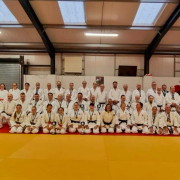British Kata Champions Crowned
The first British Kata Championships to be held since the pandemic saw another good turnout and some very good kata skills.
Senior Nage-no-kata saw three very close pairs, all of good standard, two of them making their debut at kata competition. The gold and silver medalists in Katame-no-kata were also very close, just two marks between them (366 to 364) and in fact, 3rd and 4th places in that kata were exactly tied, with both pairs on 343. Shizentai Judo Club increased their number of gold medals from three in 2019 to four this year, including a clean sweep of the combat kata.
The junior Nage-no-kata saw four pairs of very varied ages, from 9 to 15 years, but still all four of a good standard, and there was a new category (for recent years) in junior Ju-no-kata, but the very best came last, with a wonderfully inspiring adaptive Nage-no-kata from wheelchair user Isabelle Everest and her partner Braydon Robus. Kata and adaptive judo are a perfect match, and the Kata Group are now going to have a permanent adaptive section.
Another change to the categories from next year will be the introduction of Itsutsu-no-kata to replace Gonosen-no-kata. The techniques in Gonosen will be familiar to all judo players, but it is not a Kodokan kata and the absence of an accepted standard makes it a difficult one for the British Championships. The possibility of having a Gonosen kata tournament as an online event will be considered.
Llyr Jones and Dave Horton-Jones were also making their debuts as national judges, along with four judges for the juniors, drawn from our top kata competitors, and also Trish Baron, a senior kata expert from Israel who attended the event as an observer.
Start practising now for the 2023 Championships!
Results
Watch out for further news from British Judo by checking out our latest news section. You can also catch up via our official social media platforms, Facebook, Twitter and Instagram.
Photo credit: Jim Crompton






